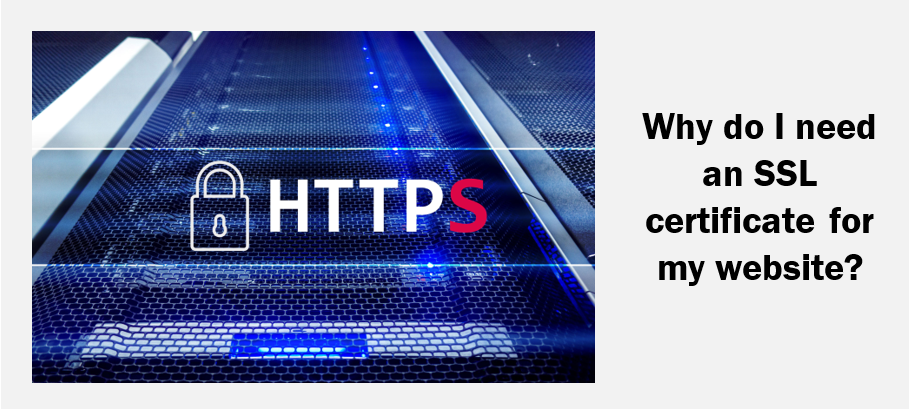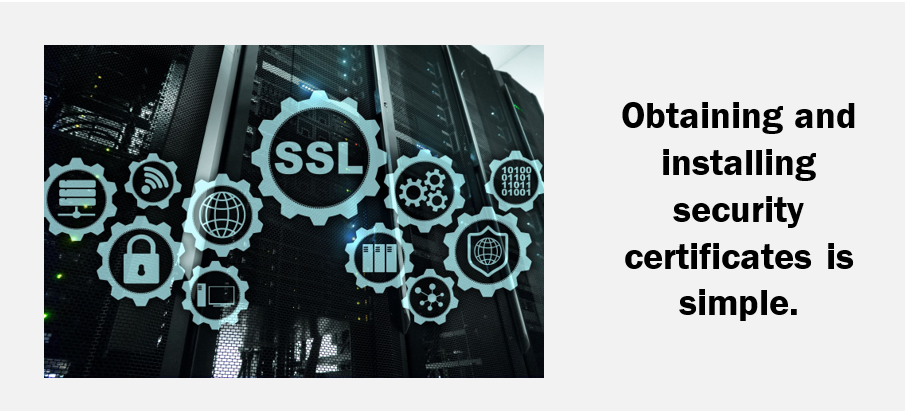Security Certificates for the Protection of Web-Facing Resources
Establish the Identity of your Websites & Web-Facing Customer Interfaces and Encrypt Sensitive Communications with SSL/TLS Security Certificates.
Security certificates are easy to install and an inexpensive way of validating your website’s identity and encrypting interactions with visitors.
SSL Overview

Secure Sockets Layer (SSL) and Transport Layer Security (TLS) are protocols that verify the identity of a website or Web-based resource. They also encrypt communication between the site and its visitors.
When a site displays HTTPS:// before its name, that indicates a valid connection to a site employing the use of a security certificate.
How Does it Work?
An SSL/TLS certificate consists of a simple file that is maintained on the website’s server. It contains information about the site’s identity, such as the domain name and organization it was issued to, along with the name of the certificate authority that issued it, and the certificate’s issue and expiration dates.
It also contains what are known as “public” and “private” encryption keys. When a connection is being made, the public key is exchanged to validate the identity of the server to other computers seeking to connect. The private key remains secret.
Why are Certificates Important?
In addition to promoting secure communications, security certificates have become increasingly important as a means of establishing credibility. Given the increasing prevalence of phishing attempts, savvy users have become accustomed to looking for HTTPS:// to take the place of “www” when a secure connection has been made. In the absence of such, visitors cannot be certain that they are in fact interacting with the legitimate destination site.
Obtaining Certificates

Certificates are inexpensive, and easy to issue and install. To purchase a new certificate or renew an existing one, just ask your Sandbox Technologies Engineer, Account Manager or Consulting CIO.

Telephone
877-930-8324
Los Angeles area
424-207-5130
Support Helpdesk
424-207-5140
